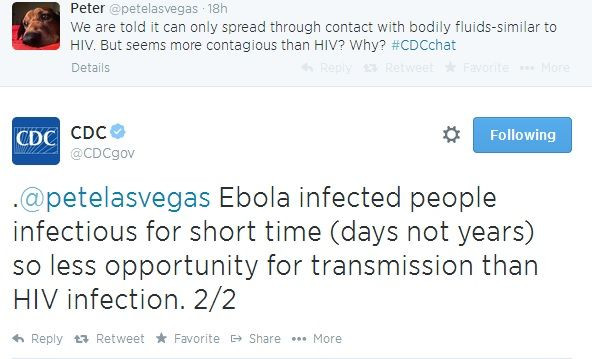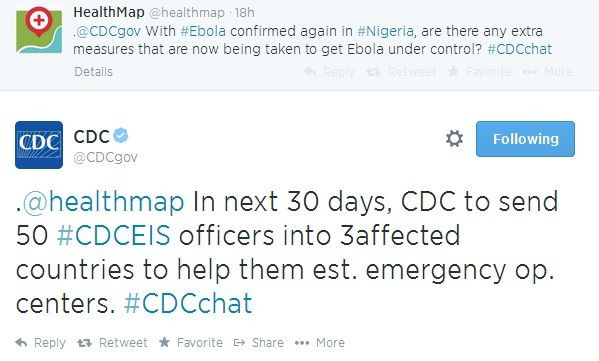NYC Ebola Case Most Likely Not The Virus But Ordinary Fever, Digestive Issues

Yesterday news broke that a patient admitted to Mount Sinai Hospital in New York was being tested for Ebola. Though the patient’s high fever and gastrointestinal pain after a recent trip to West Africa were cause for concern, “odds are, it’s something else,” said Dr. Jeremy Boal, the hospital’s chief medical officer, at a news conference Monday, the NY Daily News reported.
Additionally, according to a statement released by the city's health department, “the patient is unlikely to have Ebola. Specimens are being tested for common causes of illness and to definitively exclude Ebola. Testing results will be made available by the Centers for Disease Control and Prevention (CDC) as soon as they are available,” The New York Times reported.
This (mostly) comes as a relief to those worried Ebola already made its way to New York just days after Kent Brantly, 33, the first of two American doctors infected with the disease, arrived at Emory University Hospital in Atlanta via air ambulance. The second, Nancy Writebol, 59, arrived earlier today. Both are being treating in isolation with an experimental serum.
Since the outbreak in March, there have been other U.S.-based Ebola scares. Most recently, a man flying through JFK International Airport was admitted to Bellevue Hospital in New York for disease-like symptoms, but was released when his condition improved. Another patient who recently traveled to West Africa was admitted to NYU Langone Medical Center, but didn't proceed with the test when it came to light the patient hadn't been to any of the affected countries.
In the event these patients did test positive for Ebola, the CDC assured followers in a Twitter chat yesterday that adhering to their infection control recommendations are what help doctors and other health care workers safely manage infected patients. It could be considered a call-to-action now that The New York Times finds, too, proper quarantine is not always upheld in afflicted areas.
Dr. Stuart Nichol, the Atlanta-based Ebola expert overseeing the chat, fielded questions from the origins of the disease (first discovered in 1976 in the Democratic Republic of Congo), to whether it's caused by latent infections (it's not; only acute), and how close we are to a promising treatment (as soon as two years).


An overwhelming amount of the questions for the CDC revolved around upcoming treatments and vaccines, as Ebola's fatality rate is up to 90 percent. At the same time, Dr. Nichol speculates an answer is up to two years away, the National Institutes of Health is expediting human trials on an experimental vaccine that's been shown to prevent infection in monkeys.
Regardless, as science and health care workers scramble to maintain the worst Ebola outbreak to date, catch up on the five must-know facts about Ebola virus. The chances of Ebola hitting close to home are slim, but being aware of the virus's risk factors and short-term solutions — quarantine and protective clothing — can help to control, and eventually prevent, future outbreak.



























